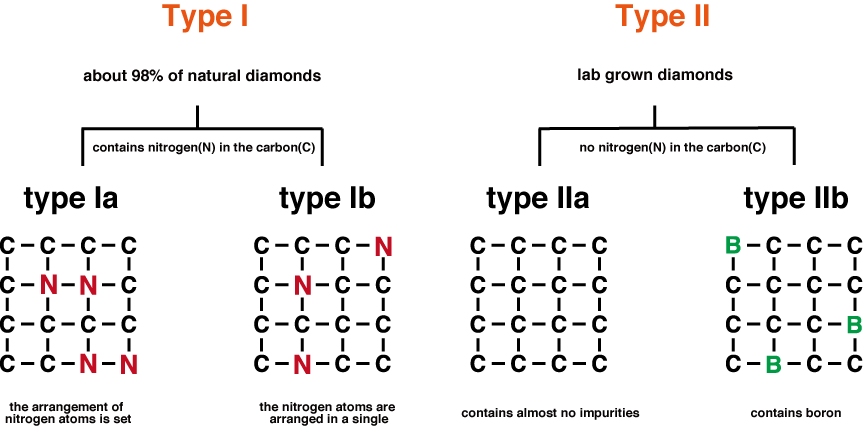
Lab-Grown Diamonds
ラボグロウンダイヤモンド

WHAT ARE LAB-GROWN DIAMONDS?
Lab grown diamonds are made under the same conditions as the natural diamonds from which they are mined. It has the exact same structure as natural diamonds.
Natural diamond requires more than 1 billion years of pressure and high temperatures to form. While lab-grown diamonds have made this process much more efficient through the application of advanced science and technology.
Physically and chemically identical in structure to natural diamonds, they are indistinguishable from them even by a professional diamond grader and can only be distinguished from natural diamonds with the help of specialized machines.
Benefit
Three Advantages of Lab-Grown Diamonds.

-
NO CONFLICT
Because it is made in a lab, it is guaranteed to be conflict-free and ethical, and there is zero chance of conflict diamonds. With mined natural diamonds, we cannot guarantee it. And it has the advantage of being a sustainable source of supply for the next generation.
-
ECO-FRIENDLY
Compared to mined diamonds, lab-grown diamonds have no impact on the environment, do not pollute water bodies or degrade the soil.
-
PRICE
Our lab-grown diamonds are 30-40% less expensive than their natural diamond counterparts mined from the ground, with the elimination of intermediate costs due to the short supply chain.
Differences
The difference between lab-grown diamonds and natural diamonds.
Lab-Grown diamonds are made under the same conditions as mined natural diamonds, they exhibit exactly the same physical, chemical and optical properties as mined natural diamonds. The only difference is that the diamonds grown in the lab are being produced in a laboratory on Earth.
| Chemical Formula | Thermal Conductivity | Crystal Structure | Mohs Hardness | Density[g/㎠] | Refractive Index | Optical Dispersion | |
|---|---|---|---|---|---|---|---|
| [Diamond] | |||||||
| Natural Diamond | C | HIGH | CUBIC | 10 | 3.52 | 2.42 | 0.044 |
| Lab Grown Diamond | C | HIGH | CUBIC | 10 | 3.52 | 2.42 | 0.044 |
| [Imitation Stone] | |||||||
| Cubic Zirconia | ZrO2 | LOW | CUBIC | 8.25 | 5.70 | 2.20 | 0.066 |
| Moissanite | SIC | HIGH | HEXAGONAL | 9.25 | 3.21 | 2.65 | 0.104 |
| White Sapphire | AI2O3 | LOW | HEXAGONAL | 9 | 3.97 | 1.77 | 0.018 |
Type of Diamond ダイヤモンドのタイプ

All lab-grown diamonds are Type IIa
Type IIa diamonds are crystallized without impurities and are harder and more brilliant than Type Ia diamonds.
Only 2% of all natural diamonds mined from the earth are Type IIa diamonds, and the larger diamonds, especially the larger ones, have premiums and fetch high prices.
Diamonds are generally described as "crystals of pure carbon only" or "gemstones composed of a single element". In reality, however, many natural diamonds grow deep in the ground, taking in other elements and other elements as they crystallize over the years. Most of them are nitrogen, which is an element found in many parts of the earth.
Our 4C's of Diamonds ダイヤモンド品質基準
We guarantee the following grades for diamonds from PRMAL:
Carat - From 0.005ct
Color - G or better
Clarity - VS2 or better
Cut - Good or better *1

